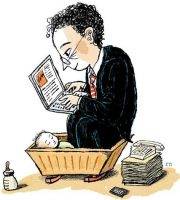December 8, 2016
Half of UK firms will hold Christmas parties but just a fifth offer bonuses or extra time off 0
We’re entering the office party season now so it’s time for the usual flurry of Christmas related research. We kick off the season with this from XpertHR which claims that the majority of companies it has polled will host company-wide parties (50.8 percent) or departmental Christmas lunches (47.2 percent), but there will be fewer Christmas gifts, bonuses awarded or additional time off for employees this year. Employers plan to spend an average of £93.33 and a median of £50 per employee on their Christmas celebrations – a figure which hasn’t changed significantly since the last time XpertHR conducted this survey in 2012/13, when the median spend was £42.82. However, fewer than one in five organisations (17.9 percent) will be offering employee gifts this year compared to 21.1 percent in 2012/2013 and just 18 employers will award Christmas bonuses, with no increases planned compared with last year.




















 The first full month of market activity in the UK’s commercial property sector since the Brexit vote, saw its value fall by just under three percent, according to
The first full month of market activity in the UK’s commercial property sector since the Brexit vote, saw its value fall by just under three percent, according to 
 It is no longer a question of whether one of the world’s major economies will introduce a universal basic income for all of its citizens, but when. Over the weekend, the leader of the UK’s Labour Party Jeremy Corbyn announced in
It is no longer a question of whether one of the world’s major economies will introduce a universal basic income for all of its citizens, but when. Over the weekend, the leader of the UK’s Labour Party Jeremy Corbyn announced in 
 Fifteen million UK internet users have undertaken a ‘digital detox’ in a bid to strike a healthier balance between technology and life beyond the screen, according to a new Ofcom study. The study of around 2,500 people suggests that our reliance on the internet is affecting people’s personal and working lives, leading many to seek time away from the web to spend time with friends and family. Ofcom’s
Fifteen million UK internet users have undertaken a ‘digital detox’ in a bid to strike a healthier balance between technology and life beyond the screen, according to a new Ofcom study. The study of around 2,500 people suggests that our reliance on the internet is affecting people’s personal and working lives, leading many to seek time away from the web to spend time with friends and family. Ofcom’s 









October 5, 2016
An enlightened approach is needed for the new era of artificial intelligence 0
by Mark Eltringham • Comment, Technology
More →